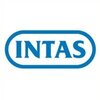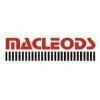


i
Proud winner of ABECA 2025 - AmbitionBox Employee Choice Awards
Filter interviews by
Sun Pharmaceutical Industries Chemist Quality Control Interview Questions and Answers
6 Interview questions
Boling point tungsten does not exist as tungsten has a very high melting point.
Tungsten has a melting point of 3422°C, which is the highest of all metals.
The boiling point of tungsten is not applicable as it does not exist in a liquid state under normal conditions.
Tungsten is commonly used in high-temperature applications such as light bulb filaments and rocket nozzles.
Bases are used in laboratories for various purposes, including pH adjustment, neutralization reactions, and synthesis of chemicals.
Bases are substances that can accept protons or donate pairs of electrons.
They are commonly used to adjust the pH of solutions by neutralizing acidic substances.
Bases are also used in neutralization reactions to convert acids into salts and water.
In chemical synthesis, bases are often ...
Organic chemistry is the branch of chemistry that deals with the study of carbon-based compounds and their properties.
Organic chemistry focuses on the structure, properties, composition, reactions, and synthesis of carbon-based compounds.
It involves the study of hydrocarbons, such as alkanes, alkenes, and alkynes, as well as functional groups like alcohols, ethers, and carboxylic acids.
Organic chemistry plays a cr...
The pH range in drinking water typically falls between 6.5 and 8.5.
The pH range in drinking water is important for maintaining water quality and safety.
A pH below 6.5 may indicate acidic water, while a pH above 8.5 may indicate alkaline water.
The ideal pH range for drinking water is generally considered to be between 6.5 and 8.5.
pH levels outside this range may affect the taste, odor, and safety of the water.
For e...
A detector is used in gas chromatography to measure the concentration of analytes in the sample.
The detector is an essential component of a gas chromatography system.
It detects and quantifies the separated components of a sample.
Different types of detectors are used, such as flame ionization detector (FID), thermal conductivity detector (TCD), and electron capture detector (ECD).
The choice of detector depends on t...
The strongest acids commonly used in laboratories are sulfuric acid, hydrochloric acid, and nitric acid.
Sulfuric acid (H2SO4) is a highly corrosive and strong acid commonly used in various laboratory applications.
Hydrochloric acid (HCl) is another strong acid frequently used in laboratories for pH adjustment and chemical reactions.
Nitric acid (HNO3) is a powerful acid used for various purposes, including metal etc...
Sun Pharmaceutical Industries Chemist Quality Control Interview Experiences
2 interviews found
I applied via Company Website and was interviewed in Nov 2022. There were 4 interview rounds.

Describe a quality you feel make a successful pharmacist.and what role do you feel pharmacist play in the success in health care.
I write assignment for pharmacist and quality control.
(3 Questions)
- Q1. Like pharmacist questions.
- Q2. Pharmacist questions
- Q3. Quality control and pharmacist.
Interview Preparation Tips
- Pharmacist
- Quality Control
I applied via Company Website and was interviewed in Aug 2022. There were 4 interview rounds.

Aptitude test on the basics of Chemistry
(6 Questions)
- Q1. What is boling point tungsten ?
- Q2. What is detecter use in gas chromatography ?
- Ans.
A detector is used in gas chromatography to measure the concentration of analytes in the sample.
The detector is an essential component of a gas chromatography system.
It detects and quantifies the separated components of a sample.
Different types of detectors are used, such as flame ionization detector (FID), thermal conductivity detector (TCD), and electron capture detector (ECD).
The choice of detector depends on the sp...
- Q3. What is pH rang in drinking water ?
- Ans.
The pH range in drinking water typically falls between 6.5 and 8.5.
The pH range in drinking water is important for maintaining water quality and safety.
A pH below 6.5 may indicate acidic water, while a pH above 8.5 may indicate alkaline water.
The ideal pH range for drinking water is generally considered to be between 6.5 and 8.5.
pH levels outside this range may affect the taste, odor, and safety of the water.
For exampl...
- Q4. What is organic Chemistry?
- Ans.
Organic chemistry is the branch of chemistry that deals with the study of carbon-based compounds and their properties.
Organic chemistry focuses on the structure, properties, composition, reactions, and synthesis of carbon-based compounds.
It involves the study of hydrocarbons, such as alkanes, alkenes, and alkynes, as well as functional groups like alcohols, ethers, and carboxylic acids.
Organic chemistry plays a crucial...
- Q5. Strongest acids in Laboratory
- Ans.
The strongest acids commonly used in laboratories are sulfuric acid, hydrochloric acid, and nitric acid.
Sulfuric acid (H2SO4) is a highly corrosive and strong acid commonly used in various laboratory applications.
Hydrochloric acid (HCl) is another strong acid frequently used in laboratories for pH adjustment and chemical reactions.
Nitric acid (HNO3) is a powerful acid used for various purposes, including metal etching ...
- Q6. What is base use in Laboratory
- Ans.
Bases are used in laboratories for various purposes, including pH adjustment, neutralization reactions, and synthesis of chemicals.
Bases are substances that can accept protons or donate pairs of electrons.
They are commonly used to adjust the pH of solutions by neutralizing acidic substances.
Bases are also used in neutralization reactions to convert acids into salts and water.
In chemical synthesis, bases are often emplo...
(2 Questions)
- Q1. How many accepted salary?
- Q2. How many SGPA in msc
Interview Preparation Tips
- Organic Chemistry
- Analytical Chemistry
Top trending discussions






Interview questions from similar companies

Assistant Manager Interview Questions & Answers
Alembic Pharmaceuticalsposted on 13 Jun 2022
I applied via Approached by Company and was interviewed before Jun 2021. There were 2 interview rounds.

(1 Question)
- Q1. Basic about job experience
Interview Preparation Tips

Assistant Manager Interview Questions & Answers
Zydus Lifesciencesposted on 10 Jul 2017
I appeared for an interview before Jul 2016.
Interview Questionnaire
2 Questions
- Q1. Related to experience
- Q2. System based test
Interview Preparation Tips
Experience: Multiple choice questions related to your experience
Tips: Link will send to personal mail
Duration: 30 minutes
Total Questions: 30
Round: Technical Interview
Experience: By department HOD
Round: Behavioural Interview
Experience: Psychometric test

I applied via Referral and was interviewed in Mar 2020. There was 1 interview round.
Interview Questionnaire
1 Question
- Q1. Your views on data integrity
- Ans.
Data integrity is crucial for accurate decision-making and maintaining trust in the organization.
Data integrity ensures that data is accurate, complete, and consistent.
It is important to have proper data management policies and procedures in place.
Regular data audits and checks should be conducted to ensure data integrity.
Examples of data integrity violations include data entry errors, system glitches, and unauthorized...
Interview Preparation Tips
Skills evaluated in this interview

I applied via Company Website and was interviewed in Nov 2019. There were 3 interview rounds.
Interview Questionnaire
9 Questions
- Q1. What was your job role in my previous company?
- Ans.
I was a Senior Sales Associate responsible for managing a team of sales representatives and achieving sales targets.
Managed a team of sales representatives
Set and achieved sales targets
Provided training and guidance to new team members
Analyzed sales data and implemented strategies to improve performance
- Q2. How do you find the reagent addition rate for exothermic reaction?
- Q3. How does a PID temperature indicator controlled works and explains how ramping function works?
- Ans.
A PID temperature indicator controls temperature by adjusting heating/cooling based on feedback from sensors.
PID stands for Proportional-Integral-Derivative, which are the three control modes used to adjust temperature.
The indicator receives input from temperature sensors and compares it to the desired temperature setpoint.
Based on the difference between the two, the PID controller adjusts the heating/cooling output to...
- Q4. Have you ever designed a utility distibution systems for a given block,of you have then explain the concept behind it?
- Ans.
Utility distribution systems ensure efficient delivery of essential services like water, electricity, and gas to designated areas.
Design involves assessing the demand for utilities in the block based on population and usage patterns.
Incorporate sustainable practices, such as using renewable energy sources for electricity distribution.
Example: For a residential block, design a grid layout for electricity that minimizes ...
- Q5. What is MTSR,DSC,TSC and their diffences and when they are used?
- Ans.
MTSR, DSC, and TSC are metrics used in call centers to measure performance and efficiency.
MTSR stands for Mean Time to Service Request and measures the average time it takes for a customer's service request to be resolved.
DSC stands for Delayed Service Calls and measures the number of service calls that were not resolved within a certain timeframe.
TSC stands for Total Service Calls and measures the total number of serv...
- Q6. XRD of crystalline material vs amorphous material differnces and explain?
- Ans.
XRD is a technique used to determine the crystal structure of a material. Crystalline and amorphous materials show different patterns.
XRD stands for X-ray diffraction
Crystalline materials have a regular, repeating pattern of atoms while amorphous materials lack this pattern
XRD patterns of crystalline materials show sharp peaks while amorphous materials show broad peaks
XRD can be used to identify unknown crystalline mat...
- Q7. What is the degree of freedom of water at triple point?
- Ans.
The degree of freedom of water at triple point is 0.
Triple point is the temperature and pressure at which solid, liquid, and gas phases of a substance coexist in thermodynamic equilibrium.
At triple point, the degree of freedom of a substance is zero because all three phases coexist in equilibrium.
Water has a triple point at 273.16 K (0.01 °C) and a pressure of 611.73 Pa.
At triple point, water can exist as ice, liquid w...
- Q8. What is risk?
- Ans.
Risk is the possibility of loss or harm occurring due to uncertain events or circumstances.
Risk involves uncertainty and the potential for negative consequences.
It can be managed through risk assessment, mitigation, and transfer.
Examples of risks include financial risks, health risks, and environmental risks.
Risk can also present opportunities for growth and innovation.
- Q9. How would you calculate the power required for a pump?
- Ans.
The power required for a pump can be calculated using the formula: Power = (Flow rate x Head) / Efficiency
Calculate the flow rate of the pump
Determine the head or pressure required
Consider the efficiency of the pump
Use the formula: Power = (Flow rate x Head) / Efficiency
Example: If the flow rate is 1000 liters per minute, the head is 50 meters, and the efficiency is 80%, the power required would be (1000 x 50) / 0.8 = ...
Interview Preparation Tips
One should be very clear in what they are saying.
Skills evaluated in this interview

I applied via AmbitionBox and was interviewed before Aug 2021. There were 2 interview rounds.

(2 Questions)
- Q1. What is your current job responsibility?
- Q2. Why you want to change the current job responsibility?
Interview Preparation Tips
- Reagrding OOS OOT and incidences

I applied via Referral and was interviewed before Feb 2021. There were 3 interview rounds.

(1 Question)
- Q1. Process Validation and cleaning validation related
(1 Question)
- Q1. Why are you looking for a change?
- Ans.
I'm seeking new challenges and opportunities for growth that align with my career aspirations and skills.
Desire for professional growth: I want to take on more responsibilities and lead projects.
Seeking a better cultural fit: My current workplace lacks collaboration and innovation.
Looking for new challenges: I'm eager to work in a dynamic environment that pushes my limits.
Career advancement: I'm ready to move into a ro...
Interview Preparation Tips

I applied via Approached by Company and was interviewed before Nov 2021. There were 2 interview rounds.

(2 Questions)
- Q1. Basics of Electrical, Standards related to earthing, Protection of Transformer,
- Q2. Statutory Requirements, Maintenance of DG sets, Power billing and bidding
Interview Preparation Tips

Interview Questionnaire
1 Question
- Q1. About subject of my department related
Sun Pharmaceutical Industries Interview FAQs
Tell us how to improve this page.
Sun Pharmaceutical Industries Interviews By Designations
- Sun Pharmaceutical Industries Medical Representative Interview Questions
- Sun Pharmaceutical Industries Senior Officer Interview Questions
- Sun Pharmaceutical Industries Executive Interview Questions
- Sun Pharmaceutical Industries Sales Executive Interview Questions
- Sun Pharmaceutical Industries Pharmacist Interview Questions
- Sun Pharmaceutical Industries Production Manager Interview Questions
- Sun Pharmaceutical Industries Officer Interview Questions
- Sun Pharmaceutical Industries Sales Officer Interview Questions
- Show more
Interview Questions for Popular Designations
- Assistant Manager Interview Questions
- Quality Engineer Interview Questions
- Deputy Manager Interview Questions
- Quality Analyst Interview Questions
- Quality Inspector Interview Questions
- Quality Controller Interview Questions
- Senior Quality Engineer Interview Questions
- Quality Manager Interview Questions
- Show more
Overall Interview Experience Rating
based on 1 interview experience
Difficulty level
Duration
Interview Questions from Similar Companies

Sun Pharmaceutical Industries Chemist Quality Control Reviews and Ratings
based on 8 reviews
Rating in categories
|
Senior Officer
1.7k
salaries
| ₹3.4 L/yr - ₹8.1 L/yr |
|
Executive
1.4k
salaries
| ₹4 L/yr - ₹10.5 L/yr |
|
Officer
1.3k
salaries
| ₹2.1 L/yr - ₹6.2 L/yr |
|
Senior Executive
1.1k
salaries
| ₹8 L/yr - ₹13.8 L/yr |
|
Manager
934
salaries
| ₹11.8 L/yr - ₹20.5 L/yr |

Cipla

Dr. Reddy's

Lupin

Zydus Lifesciences
- Home >
- Interviews >
- Sun Pharmaceutical Industries Interview Questions









